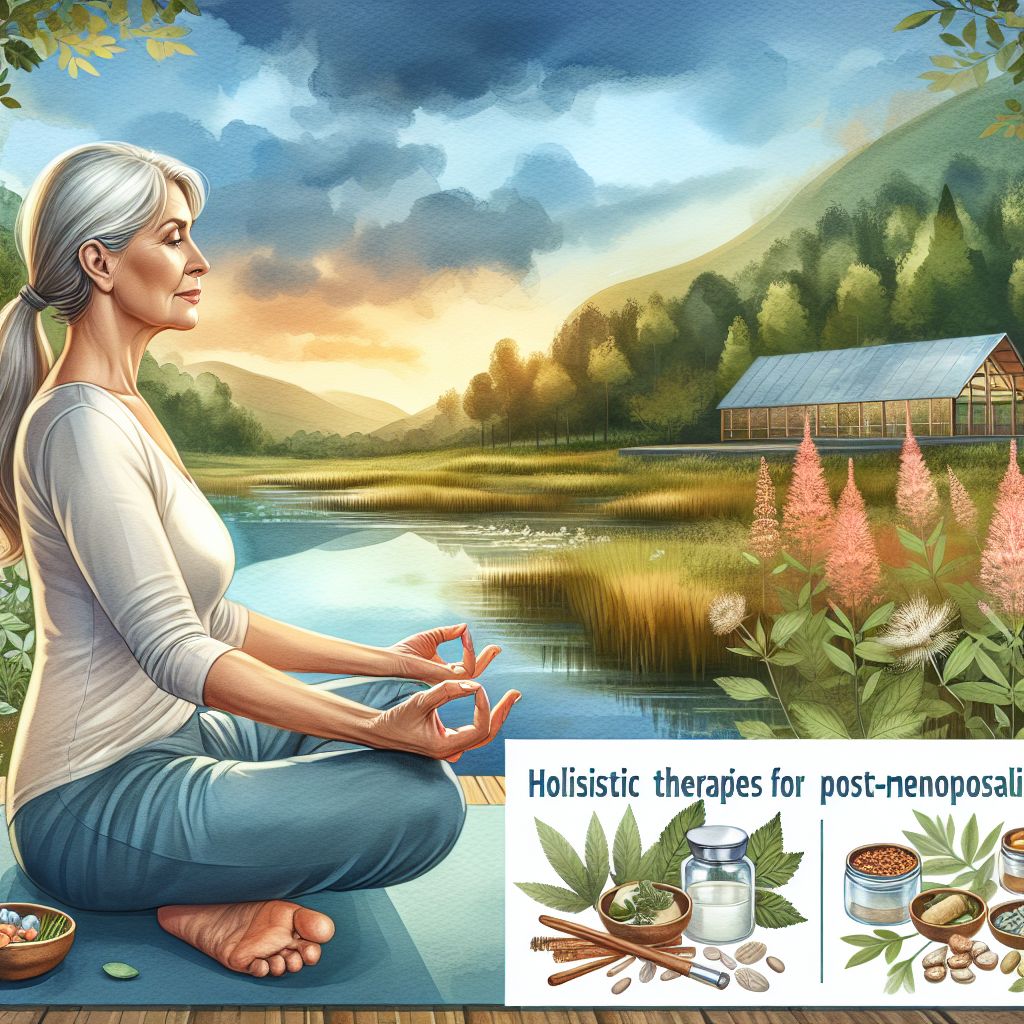What do we know about how much genetics and aging have to do with each other? And if there is a connection between them, how can we apply the insights in this matter to our daily life? Read on and find out…
Key Takeaways
- Understanding the role of genetics in aging can help you make informed lifestyle choices.
- Telomeres are a key part of our chromosomes affecting our aging process, and they can be influenced by our behaviors.
- While genetics play a role in longevity, lifestyle factors like diet and exercise have a significant impact on gene expression.
- There are limits to how much we can control aging through genetics, but awareness of these factors is crucial.
- Practical habits and science-backed strategies can enhance your quality of life and potentially your lifespan.
Ever wondered why some people seem to age like fine wine while others show the wear and tear of time more distinctly? The secret lies deep within our cells, in the very blueprint of life: our DNA. But it’s not just about what you’re born with; it’s also about how you live your life. So, let’s dive into the fascinating world of genetics and aging, and more importantly, what you can actually do about it.
Decoding How Genes Influence Longevity
Our genes are like a set of instructions that guide the functioning of our bodies, including how we age. They can influence our susceptibility to diseases, the resilience of our skin, and even the length of our lives. But, and this is a big but, they’re not the whole story. Genes set the stage, but your actions can change the script. By understanding genetics, you can make choices that may help tip the scales in favor of a longer, healthier life.
Separating Genetic Fact from Fiction
There’s a lot of hype out there about miracle anti-aging genes and potions that promise eternal youth. Let’s clear the air: aging is a complex process, and while genetics are a piece of the puzzle, they’re not the only piece. It’s essential to approach the subject with a critical eye and focus on what science really tells us about controlling the aging process through genetics.
The Genetic Blueprint of Aging
What Are Telomeres and Why Do They Matter?
At the ends of our chromosomes are protective caps called telomeres. Think of them as the plastic tips on shoelaces, keeping everything neat and preventing fraying. Every time a cell divides, these telomeres get a tad shorter, and over time, they can become too short, leading to cell aging and malfunction. This is a natural part of aging, but here’s the kicker: lifestyle choices can speed up or slow down this shortening process.
For example, a study published in ‘The Lancet Oncology’ showed that comprehensive lifestyle changes, including diet, exercise, and stress management, increased telomere length in men with low-risk prostate cancer. This suggests that it’s possible to influence the aging process at the genetic level through our daily habits.
Now, why does this matter to you? Because by understanding the role of telomeres, you can begin to take control of your aging process. You can’t stop the clock, but you might be able to slow it down a bit.
Genetic Markers: Predicting Lifespan
Scientists have identified certain genetic markers that are associated with longevity. These markers are like flags on the vast landscape of our DNA that say, “Here’s something interesting!” They can give us clues about our potential lifespan and healthspan, which is the period of life spent in good health.
But remember, these markers are just indicators, not destiny. They can inform you about potential risks and empower you to make healthier choices. For instance, if you know you have a genetic predisposition to a certain condition, you can work with your healthcare provider to monitor it closely and take preventive action.
Lifestyle vs. Inheritance: Shaping Your Aging Process
The Impact of Diet and Exercise on Genetic Expression
Your genes set the stage, but your lifestyle directs the play. What you eat and how much you move can actually influence how your genes behave. This is known as ‘epigenetics,’ where lifestyle factors can turn certain genes on or off.
- Eat a balanced diet rich in fruits, vegetables, and whole grains to help promote healthy gene expression.
- Engage in regular physical activity, which has been shown to have a positive impact on gene expression related to aging.
- Manage stress through mindfulness practices, as chronic stress can negatively affect your genetic markers.
These steps can help you nurture your genetic potential and possibly improve your quality of life as you age.
Can You Outrun Your Genetic Destiny?
While you can’t change your genetic code, you can change the narrative. A healthy lifestyle might not rewrite your DNA, but it can certainly influence how your body reads it. So, can you outrun your genetic destiny? Maybe not entirely, but you can certainly give it a good chase. Most importantly, by taking proactive steps towards a healthier lifestyle, you’re not just running away from something; you’re running towards a better, more vibrant future.
The Science of Aging: Understanding What You Can’t Change
It’s essential to recognize that while we can influence some aspects of aging, there are certain things we simply cannot change. Our genetic code is inherited from our parents and remains fixed throughout our lives. However, understanding the science behind what we can’t change can help us focus our energy on the things we can influence.
The Limitations of Genetic Influence
Our genes do play a crucial role in determining how we age, but they’re not all-powerful. You might have inherited genes that make you more likely to develop wrinkles early or grey hair in your twenties. While these genes are a part of you, they don’t have the final say. The environment, your lifestyle choices, and random chance also play significant roles in how you age.
For example, even if you have a genetic predisposition for a certain condition, it doesn’t mean you’ll definitely get it. It means you have a higher risk. That’s why it’s important to focus on what you can control, like your diet, exercise, and sleep habits, to help manage that risk.
Recognizing Unchangeable Genetic Factors
Some aspects of aging are written into your DNA and are unchangeable. For instance, your height and the color of your eyes are determined by your genes and won’t change over time. Similarly, certain genetic disorders are passed down through families and can’t be prevented. But even in these cases, there might be ways to manage symptoms or reduce their impact on your life.
Strategies for a Healthier Life Regardless of Genetics
Despite the genetic hand we’re dealt, there are numerous strategies we can adopt to live healthier, longer lives. These strategies are grounded in scientific research and focus on areas that are within our control.
One of the most empowering things you can do is to take charge of your lifestyle choices. The decisions you make every day about what you eat, how much you move, and how you handle stress can have a profound impact on your overall health and longevity.
Essential Habits to Cultivate For Longevity
To maximize your healthspan, it’s important to cultivate habits that support your body’s natural processes. This means eating a nutrient-rich diet, staying physically active, getting enough sleep, and managing stress. These habits can help mitigate the effects of any negative genetic predispositions and optimize your genetic potential for longevity.
How Science Informs Best Practices in Aging Gracefully
Science is constantly uncovering new insights into the aging process, and these discoveries inform the best practices for aging gracefully. From the benefits of antioxidants to the importance of maintaining social connections, research provides us with actionable steps we can take to age well.
Taking Action: Practical Tips for a Youthful Future
Armed with knowledge, it’s time to take action. Implementing practical tips into your daily routine can make a significant difference in how you age. These tips aren’t just about living longer; they’re about living better. It’s about making sure that as the years go by, they’re full of life, not just life full of years.
Here are some key actions you can start today:
- Include a variety of colorful fruits and vegetables in your diet to get a wide range of antioxidants that protect your cells.
- Exercise regularly to keep your body strong and resilient. Aim for a mix of cardio, strength training, and flexibility exercises.
- Get 7-9 hours of sleep each night to allow your body to repair and rejuvenate itself.
By adopting these practices, you’re not just helping your body in the here and now; you’re setting the stage for a healthier, more vibrant future.
Guidelines for Maintaining DNA Integrity
Maintaining the integrity of your DNA is a crucial aspect of aging well. While you can’t change your DNA, you can protect it from damage caused by environmental factors and lifestyle choices. Avoiding excessive sun exposure, not smoking, and limiting alcohol consumption are all important steps in preserving your DNA’s integrity.
Additionally, engaging in activities that reduce stress, such as meditation or yoga, can also have a positive effect on your genetic health. Chronic stress has been shown to negatively impact DNA, so finding ways to relax and de-stress is more important than you might think.
Incorporating Anti-Aging Research into Everyday Living
As research into anti-aging advances, it becomes increasingly possible to incorporate cutting-edge findings into our everyday lives. From nutritional supplements like resveratrol, known for its potential to activate genes associated with longevity, to the latest in skincare technology, staying informed about anti-aging research can help you make choices that support your health and longevity.
However, it’s crucial to approach new findings with a critical eye and consult with healthcare professionals before making significant changes to your health regimen. Remember, the goal is to enhance your life, not to chase after unproven fads.
And here’s an example of how research translates into real-life benefits:
Studies have shown that the Mediterranean diet, which is rich in vegetables, fruits, nuts, and healthy fats like olive oil, is associated with longer telomeres. This is just one way that making informed dietary choices can have a positive impact on your genetic health and aging process.
In conclusion, while genetics play a role in aging, there’s a lot you can do to control how those genes express themselves. By making healthy lifestyle choices and staying informed about the latest research, you can help ensure that your golden years are as vibrant and fulfilling as possible.
FAQs
Is Aging Predominantly Determined by Genetics?
Aging is a complex dance between genetics and environment. While genetics provide the music, it’s our lifestyle choices that choreograph the moves. In other words, genetics can predispose us to certain traits and health conditions that come with age, but they don’t have full control over the aging process. Lifestyle factors such as diet, exercise, and stress management play a significant role in how our bodies age over time.
How Do Telomeres Affect Aging, and Can We Protect Them?
Telomeres act as protective endcaps for our chromosomes and are a key component in the aging process. As we age, our telomeres naturally shorten, which can lead to cellular aging and dysfunction. However, research suggests that lifestyle choices like a nutritious diet, regular exercise, and stress reduction can help maintain telomere length and potentially slow down the aging process.
What Lifestyle Choices Can Influence Aging Despite Genetics?
Lifestyle choices have a profound impact on aging, regardless of our genetic makeup. Here are some key actions you can take to influence your aging process positively:
- Maintain a balanced diet rich in antioxidants and anti-inflammatory foods.
- Engage in regular physical activity to strengthen your body and mind.
- Get adequate sleep to allow your body to repair and rejuvenate.
- Manage stress through mindfulness practices like meditation and yoga.
- Avoid harmful habits such as smoking and excessive alcohol consumption.
Can Genetic Testing Predict How Well I Will Age?
Genetic testing can provide insights into your predisposition to certain health conditions and traits associated with aging. However, it’s not a crystal ball that can predict exactly how well you will age. Genetics is just one piece of the puzzle, and the interaction between your genes and your environment is what ultimately shapes your aging process.
Are There Ways to Slow Down the Aging Process?
Yes, there are several ways to potentially slow down the aging process, including:
- Maintaining a healthy lifestyle with a balanced diet and regular exercise.
- Protecting your skin from sun damage with sunscreen and protective clothing.
- Staying mentally active and engaged in social activities.
- Regular health check-ups for early detection and management of age-related conditions.
How Much Does Family History Impact My Own Aging?
Family history can provide clues about your genetic predisposition to certain aspects of aging, such as longevity and the risk of developing specific age-related diseases. However, it’s not the sole determinant of your aging process. By adopting a healthy lifestyle, you can positively influence your aging trajectory, even if you have a family history of early aging or age-related diseases.
What Role Does Epigenetics Play in Aging?
Epigenetics refers to changes in gene expression that don’t alter the DNA sequence but can affect how genes are turned on or off. Epigenetic changes are influenced by various factors, including diet, environment, and lifestyle. They play a significant role in aging by regulating the activity of genes associated with age-related changes and diseases. Understanding and potentially modifying epigenetic changes offer exciting possibilities for promoting healthy aging.



